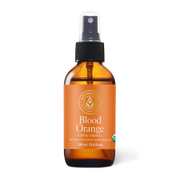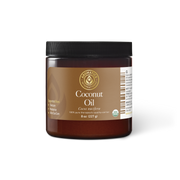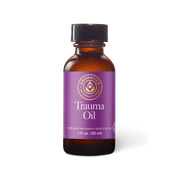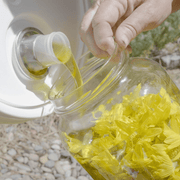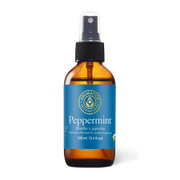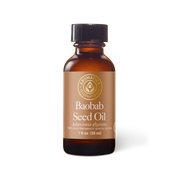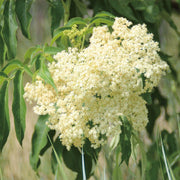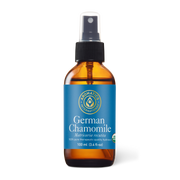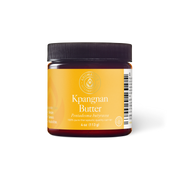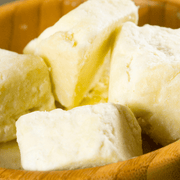Use essential oils cautiously during pregnancy
Pregnancy is a delicate time for both mother and baby. When the mother uses essential oils—whether she inhales them or applies them topically—the molecules cross into her bloodstream.
It’s always best for pregnant moms to work with a medical professional who is knowledgeable about essential oils, a midwife, and a Certified Aromatherapist, so they can ensure they’re being as safe as possible.

That said, there are safety resources you can use if you have to make a blend of essential oils on your own. It's important to always check the safety guidelines for every essential oil you’re using.
On our website, safety guidelines can be found on each essential oil’s main page.
Here’s how to find them:
- Navigate to the main page for the essential oil you’d like to use.
- Scroll down to below the description.
- Click the “Safety % Shelf Life” tab.
- The Safety & Shelf Life section will appear below. Any warnings about using that essential oil during pregnancy and lactation will appear there.

Most of our guidelines come from the book Essential Oil Safety, by Robert Tisserand and Rodney Young (second edition).
Essential oils and pregnancy: how much to use
The first trimester of pregnancy is the most sensitive for the baby.
We suggest avoiding essential oils during that time, or only using them on occasion—such as making an orange essential oil and cardamom essential oil inhaler for morning sickness.
Into the second and third trimesters, essential oils can be used a little more freely. We still suggest avoiding regular daily application, and using a low dilution of 1% as much as possible—that’s 5 or 6 drops for every 1 oz (30 ml) of carrier oil.
Check out our guidelines for essential oil safety.
It’s also important to use only pure essential oils, staying away from solvents, extracts, and oils that might be adulterated with synthetic substances (such as fragrance oils) as they can be potentially harmful.
Learn how to know if your oils are pure here.
At Aromatics, we don’t recommend you ingest essential oils—and this is doubly true during pregnancy. Exercise caution when using essential oils topically and avoid ingesting them during pregnancy.
Essential oils to avoid during pregnancy
There’s no universally accepted list of certain essential oils to avoid during pregnancy.

That said, we can make educated decisions based on the information we have about the way essential oils and their constituents behave in the body. While perfectly safe using appropriate application methods at other times, we suggest avoiding the following essential oils during pregnancy unless guided to do so by a qualified aromatherapist or doctor.
Some of our essential oils that are contraindicated during pregnancy are:
- Anise Oil (Pimpinella anisum)
- Carrot Seed Oil (Daucus carota ssp. sativus)
- Cinnamon Bark Oil (Cinnamomum zeylanicum)
- Blue Cypress Oil (Callitris intratropica)
- Fennel Sweet Oil (Foeniculum vulgare)
- Myrrh Oil (Commiphora myrrha)
- Oregano Oil (Origanum vulgare)
- Wintergreen Oil (Gaultheria fragrantissima)
Essential oil alternatives during pregnancy
If you’d like to avoid using essential oils during pregnancy, you still have plenty of options for using aromatherapy during pregnancy.
Carrier oils, butters, and hydrosols can be profoundly supportive—and they don’t carry the same safety concerns as essential oils.
5 Hydrosols to use during pregnancy
1. Blood Orange Hydrosol (Citrus sinensis)
Helpful for your belly, and when you feel too tired or low-spirited, blood orange hydrosol has a refreshing, bright scent that smells like freshly sliced fruit! Get some of the natural remedies provided by citrus oils with blood orange hydrosol.
2. Elderflower Hydrosol (Sambucus caerulea)
Use this sweet, floral, refreshing hydrosol when you feel sluggish and puffy, and when you want a natural way to boost immune support.
3. German Chamomile Hydrosol (Matricaria recutita)
German chamomile hydrosol’s sweet, fresh, herbal aroma can help balance strong emotions, and encourage a deep rest at night. This is also a helpful hydrosol for sore joints and muscle aches, and to cool down when you feel overheated.
4. Lavender Hydrosol (Lavandula angustifolia)
With an irresistible floral smell, lavender hydrosol helps calm strong emotions. A few sprays can encourage serenity and relaxation. Lavender hydrosol can also ease sore, tense areas of the body. Like lavender oil, lavender hydrosol provides relaxation and stress relief during an exciting time.
5. Peppermint Hydrosol (Mentha × piperita)
A few mists of peppermint hydrosol can boost your energy and cool you down, while having a settling, comforting effect for your belly. You can get effects similar to peppermint oil with peppermint hydrosol.
5 Carrier oils & butters to use during pregnancy
1. Coconut Oil (Cocos nucifera)
Massage your belly (and any other growing areas of your body!) with coconut oil to nourish your skin, encouraging elasticity and helping to prevent stretch marks on a changing body.
2. Baobab Seed Oil (Adansonia digitata)
Moisturize and soothe extra dry, skin irritation with baobab oil. It’s a light, silky carrier oil that’s gentle enough for the face (use it for red, acne-prone skin during pregnancy), and rich enough for cracked knuckles or elbows.
3. Kpangnan Butter (Pentadesma butyracea)
Make a blend with kpangnan butter (pronounced “pan-ya”) to warm up cold feet, get energy moving throughout your body, and ease sore, tender spots. It’s also great for nourishing the skin on your growing belly!
4. St. John's Wort Infused Olive Oil
Trust this rich, red-hued, infused oil to comfort your back, feet, and muscles, while also bringing St. John’s wort’s famous ability to lift a chronically low mood.
5. Trauma Oil
One of the most beloved traditional products for natural relief, Trauma Oil is a combination of three soothing herbs infused in olive oil (arnica, calendula, and St. John’s wort). Use it for muscles, joints, your belly, and any sore, puffy areas.
DIY Aromatherapy recipes for pregnancy
These recipes are made with no essential oils.
Instead, they include some of the hydrosols and carriers mentioned above.
If you’d like to add essential oils to these recipes, feel free to do so. Just be sure to talk to a certified aromatherapist to ensure you’re using a blend and dilution of high quality essential oils safely.
- Mama's Belly Massage Butter
- Minty Belly Tonic
- Elderflower Energizing Mist
- Essential-Oil-Free Back Care Oil
- Whipped Shea and Kombo Butter
Keep safety in mind and have fun blending!
Essential oils can offer a world of natural support during pregnancy (and when you’re breastfeeding).
They’re wonderful for cramps, nausea, sore and achy muscles, stress, and emotional balance.
Just remember how highly concentrated essential oils are. Use low dilutions, avoid contraindicated essential oils, and check the safety guidelines for any essential oils you’re blending with. The many essential oils safe for pregnant people still require more research during the early stages of pregnancy
If you prefer to avoid essential oils, you can still make safe, effective blends for natural care during pregnancy.






